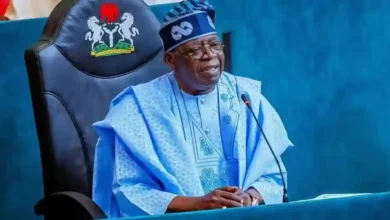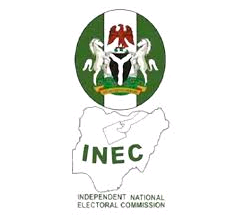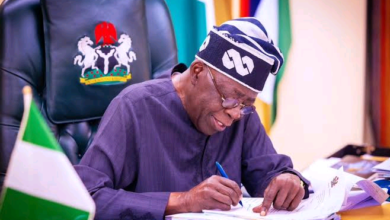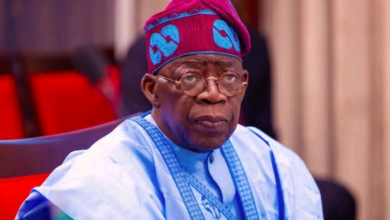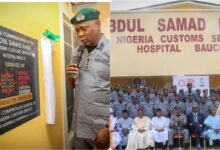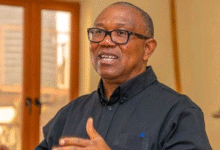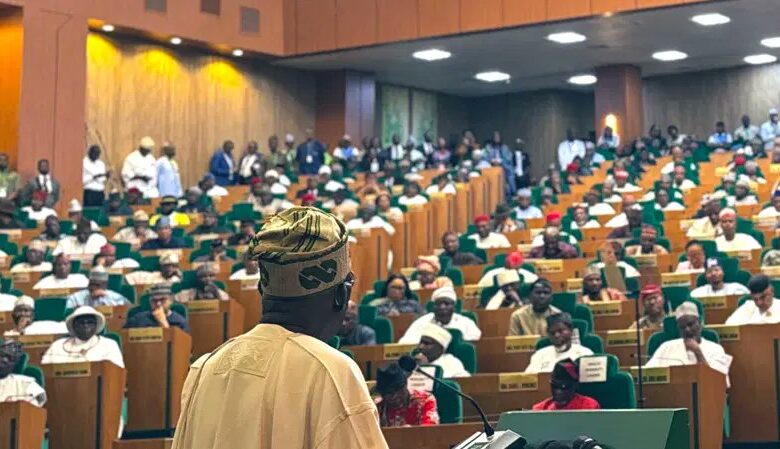
President Bola Ahmed Tinubu has presented ₦47.90 trillion to the 10th National Assembly (NASS) lawmakers for 2025 budget.
The budget titled ‘Budget of Restoration: Securing Peace, Rebuilding Prosperity’ was presented to the lawmakers in Abuja on Wednesday.
Speaking during the presentation, President Tinubu said that the philosophy of the budget seeks to restore macroeconomic stability, enhance the business environment, foster inclusive growth, employment, and poverty reduction.
He stated that it equally promotes equitable income distribution and human capital development, noting that the budgetary allocations reflect his administration’s strategic priorities, especially in the implementation of the Renewed Hope Agenda and its developmental objectives.
While elucidating on the budget overview, he mentioned that the numbers for the proposal tell a bold and exciting story of the direction his government is taking to retool and revamp the socio-economic fabric of the society.
“In 2025, we are targeting 34.82 trillion naira in revenue to fund the budget.Government expenditure in the same year is projected to be 47.90 trillion naira, including 15.81 trillion naira for debt servicing.
“A total of 13.08 trillion naira, or 3.89 percent of GDP, will make up the budget deficit. This is an ambitious but necessary budget to secure our future. The Budget projects inflation will decline from the current rate of 34.6 percent to 15 percent next year, while the exchange rate will improve from approximately 1,700 naira per US dollar to 1,500 naira, and a base crude oil production assumption of 2.06 million barrels per day (mbpd).”
He noted that the projections are based on various observations, including reduced importation of petroleum products alongside increased export of finished petroleum products, bumper harvests, driven by enhanced security, reducing reliance on food imports, increased foreign exchange inflows through Foreign Portfolio Investments as well as higher crude oil output and exports, coupled with a substantial reduction in upstream oil and gas production costs.
The president maintained that the budgetary allocations feature his administration’s strategic priorities, particularly in advancing the Renewed Hope Agenda and achieving its developmental objectives.
He highlighted the budget allocations as follows: Defence and Security: ₦4.91 trillion, Infrastructure: ₦4.06 trillion, Health: ₦2.48 trillion, Education: ₦3.52 trillion.
“As we embark on implementing the 2025 Budget, our steps are deliberate, our decisions resolute, and our priorities are clear. This budget reflects a renewed commitment to strengthening the foundation of a robust economy, while addressing critical sectors essential for the growth and development we envision.”
The Commander-in-Chief of the Armed Forces stressed the importance of securing the nation, saying that: “Security is the foundation of all progress. We have significantly increased funding for the military, paramilitary, and police forces to secure the nation, protect our borders, and consolidate government control over every inch of our national territory.
“The government will continue to provide our security forces with the modern tools and technology they need to keep us safe. Boosting the morale of our men and women in the armed forces will remain our government’s top priority. The officers, men, and women of our Armed Forces and the Nigerian Police Force are the shields and protectors of our nation.
“Our administration will continue to empower them to defeat insurgency, banditry, and all threats to our sovereignty. Our people should never live in fear—whether on their farmlands, highways or cities. By restoring peace, we restore productivity, revive businesses, and rebuild our communities.”
He recounted that when his government launched the Renewed Hope Infrastructure Development Fund, it was with the conviction that infrastructure remains the backbone of every thriving economy, stressing that “under this programme, we are accelerating investments in energy, transport, and public works.”
“By leveraging private capital, we hope to complete key projects that drive growth and create jobs. We have already embarked on key legacy projects: Lagos-Calabar Coastal Highway and Sokoto-Badagry Highway, which will have a huge impact on the lives of our people and accelerate economic output.”
He also pointed out the significance of human capital development, explaining that “our people are our greatest resource” and that is why his government is making record investments in education, healthcare, and social services.
“Our administration has so far disbursed 34 billion naira to over 300,000 students via the Nigeria Education Loan Fund (NELFUND). In the 2025 Budget, we have made provision for 826.90 billion naira for infrastructure development in the educational sector. This provision also includes those for the Universal Basic Education (UBEC) and the nine new higher educational institutions.
“We are convinced that Universal Health Coverage initiatives will strengthen primary healthcare systems across Nigeria. In this way, we have allocated 402 billion naira for infrastructure investments in the health sector in the 2025 Budget and another 282.65 billion naira for the Basic Health Care Fund. Our hospitals will be revitalised with medication and better resources, ensuring quality care for all Nigerians. This is consistent with the Federal Government’s planned procurement of essential drugs for distribution to public healthcare facilities nationwide, improving healthcare access and reducing medical import dependency.”
The president acknowledged that increasing agricultural production is central to Nigeria’s food security agenda. However, he stated that insecurity has crippled the vital sector. “We are supporting our farmers with funding and inputs to reignite productivity. Food security is non-negotiable. In this regard, we are taking bold steps to ensure that every Nigerian can feed conveniently, and none of our citizens will have to go to bed hungry.
“Our nation faces existential threats from corruption and insecurity and suffers from many past poor choices. These challenges are surmountable when we work collaboratively to overcome them. We must rewrite the narrative of this nation together, with every leader, institution, and citizen playing their part.
“The time for lamentation is over. This is a time to act. A time to support and promote greater investment in the private sector. A time for our civil servants to faithfully execute our policies and programmes. It is a time for every Nigerian to look hopefully towards a brighter future because a new day has dawned for us as a nation.”
He further said that the 2025 budget proposal lays the foundation for peace, prosperity, and much needed hope, adding that it is the plan through which a Nigeria where every citizen can dream, work, and thrive in safety can be achieved.


